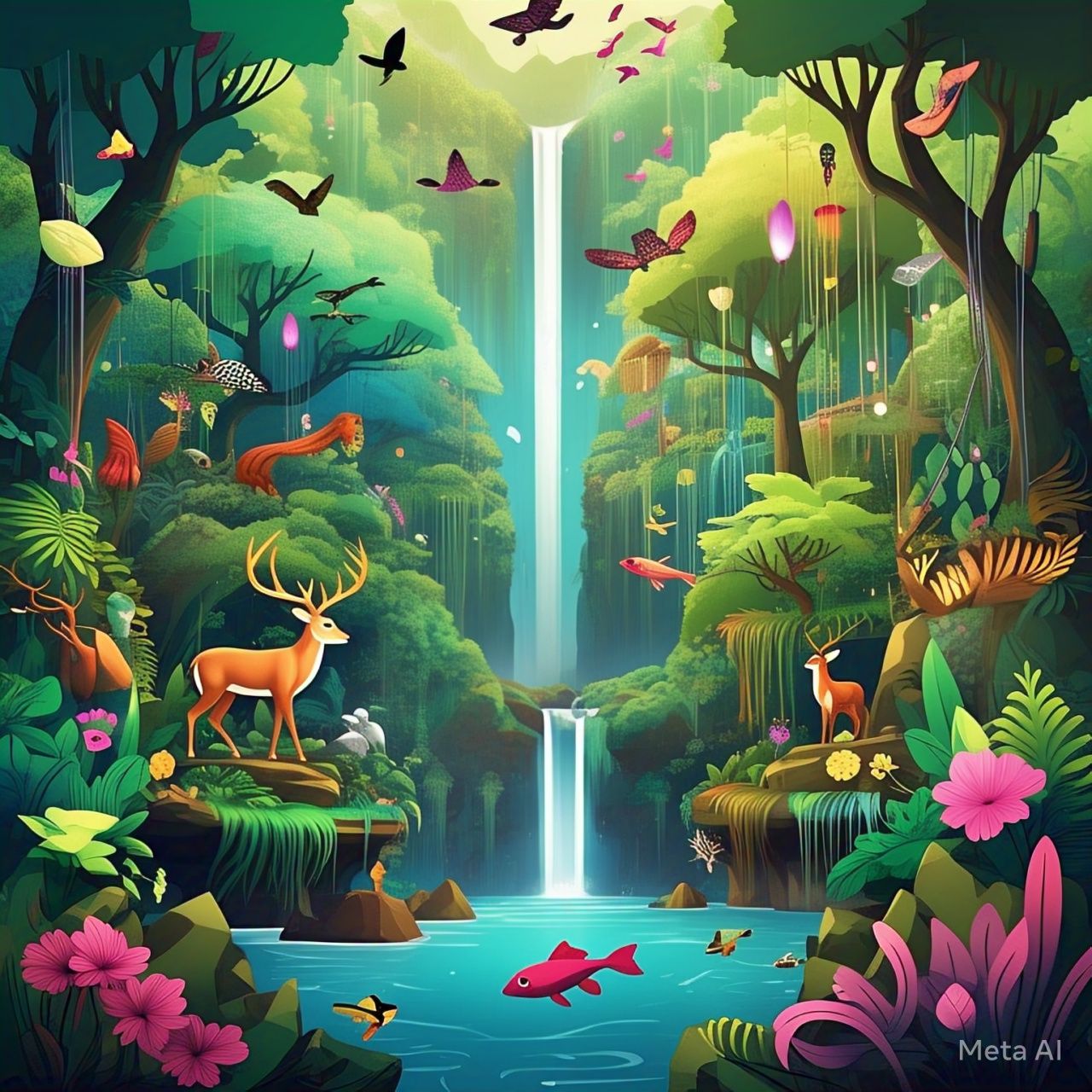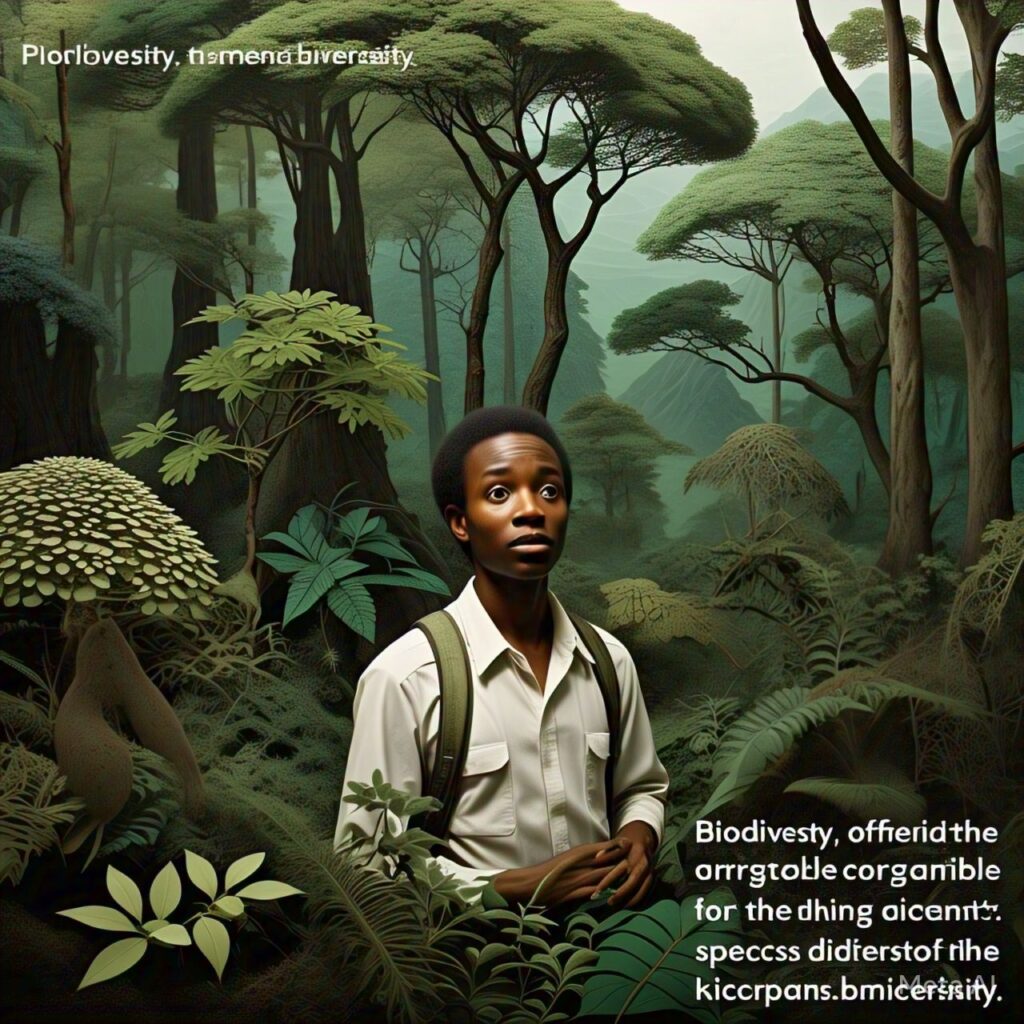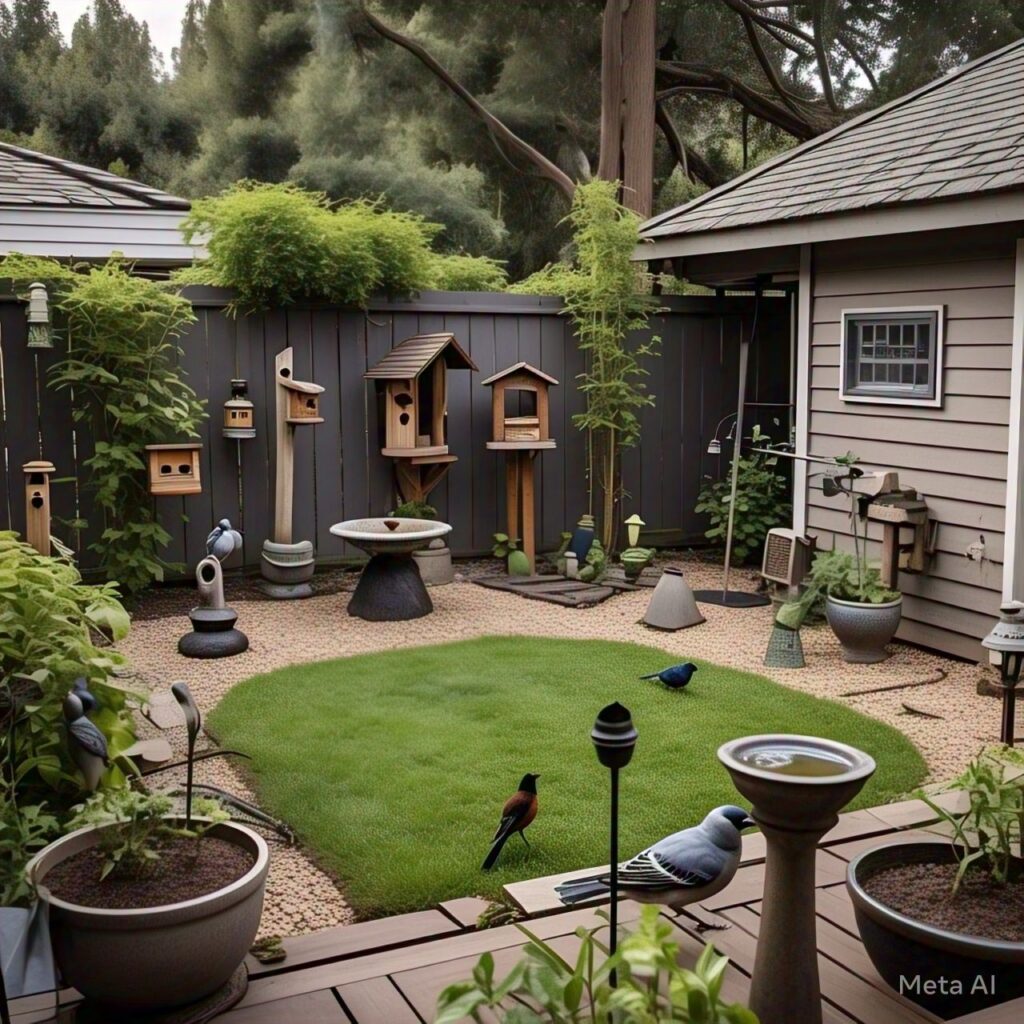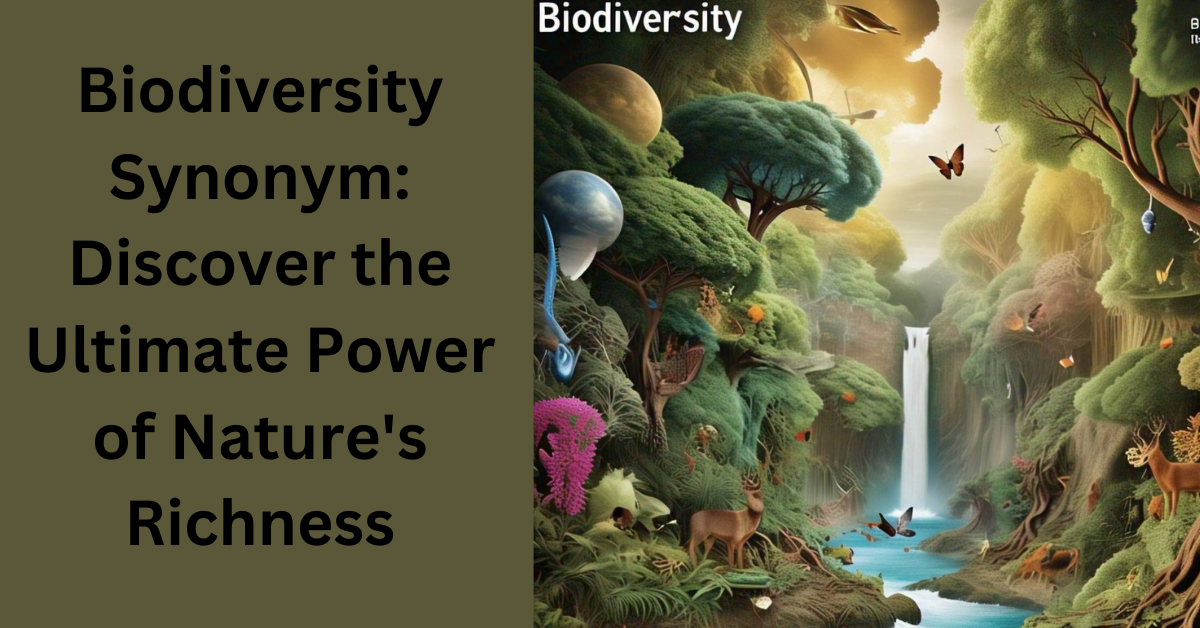Introduction
Biodiversity Synonym: Biodiversity is the life force of our planet, a term that encompasses the incredible variety of life on Earth. But have you ever wondered what a synonym for biodiversity is? Understanding the different ways to describe biodiversity not only enriches our vocabulary but also deepens our appreciation for nature’s complexity. In this article, we’ll explore synonyms for biodiversity, discover why it matters, and explain how you can play a role in protecting it. Whether you’re a nature enthusiast or just curious, this guide will help you discover the ultimate power of nature’s richness. Ready to dive in? Let’s get started!

Table of Contents
What is biodiversity?
Biodiversity, often abbreviated from biological diversity, encompasses the incredible array of living organisms that inhabit our planet. It includes everything from tiny microorganisms to tall trees, from the depths of the ocean to the highest mountain peaks. Biodiversity is often divided into three main components:
Genetic diversity refers to the differences in genetic makeup among individuals of the same species.
Species diversity: the diversity of species within a habitat or region.
Ecosystem diversity: the range of different ecosystems, such as forests, deserts, and wetlands.
When we talk about biodiversity, we are referring to the complex web of life that sustains our planet. But sometimes, we look for a synonym to capture its essence more clearly.

Synonyms for Biodiversity
So, what is a synonym for biodiversity? While “biodiversity” is the most commonly used term, there are many other words and phrases that convey the same meaning. Here are some powerful synonyms for biodiversity:
Biological diversity: This term emphasizes the scientific aspect of biodiversity, highlighting the variety of living organisms.
Ecological diversity: A phrase that underscores the diversity within ecosystems and habitats.
Species richness: This synonym focuses on the number of different species in a given area.
Natural diversity: A broad term that encompasses all forms of diversity in the natural world.
Tapestry of life: A poetic way to describe the interconnectedness of all living things.
Each of these synonyms offers a unique perspective on the concept of biodiversity. For example, “biological diversity” may appeal to scientists, while “tapestry of life” may appeal to artists and poets.

Why biodiversity matters
Biodiversity isn’t just a scientific concept; it’s the foundation of life on Earth. Here’s why it’s important:
Ecosystem stability: Diverse ecosystems are more resilient to disturbances such as climate change and natural disasters.
Human survival: Biodiversity provides essential resources such as food, medicine, and clean water.
Cultural values: Many cultures and traditions are deeply connected to nature and its diversity.
For example, more than 50% of the world’s medicines are derived from plants and animals. Without biodiversity, we would lose access to these life-saving resources. If you’re passionate about protecting biodiversity, consider supporting eco-friendly initiatives.

How to Protect Biodiversity
Biodiversity is the foundation of a healthy planet, but it is under threat from human activities such as deforestation, pollution and climate change. The good news? Every one of us can play a role in protecting biodiversity. By making small changes in our daily lives, we can contribute to preserving nature’s richness. Here are some practical and effective steps you can take to begin making a positive impact:
Plant native species
One of the easiest ways to support biodiversity is to plant native plants in your garden or community. Native species adapt to the local environment and provide essential habitats and food sources for wildlife such as birds, bees and butterflies. For example, milkweed is important for monarch butterflies, while oak trees nourish hundreds of insect species.
Reduce waste
Waste, especially plastic waste, is a major threat to biodiversity. It pollutes ecosystems, harms wildlife and disrupts natural habitats. You can reduce your waste in the following ways:
Using reusable shopping bags, water bottles, and containers.
Recycling paper, glass, and plastic properly.
Composting organic waste to create nutrient-rich soil for your garden.
Support conservation efforts
Many organizations are working tirelessly to protect endangered species and restore ecosystems. You can contribute to their mission in several meaningful ways:
Donating to reputable conservation groups.
Volunteering for local clean-up events or tree-planting initiatives.
Spreading awareness about biodiversity on social media.
Create a wildlife-friendly space
Transform your backyard or balcony into a haven for wildlife. Here’s how:
Install bird feeders and birdhouses to attract local bird species.
Add a small water feature like a birdbath or pond to provide drinking water for animals.
Avoid using chemical pesticides and fertilizers that can harm beneficial insects and soil health.

Educate yourself and others
Knowledge is power. The more you know about biodiversity, the better equipped you are to protect it. Pass on the knowledge you gain to your friends, family, and the wider community. Host a workshop, write a blog post, or simply start a conversation about why biodiversity matters.
Conclusion
Protecting biodiversity doesn’t have to be huge; small actions can make a big impact. Whether it’s planting native species, reducing waste, or supporting conservation efforts, every step counts.
Conclusion
Biodiversity isn’t just a scientific term; it’s a celebration of all forms of life. By exploring synonyms like “biological diversity” and “ecological diversity”, we gain a deeper understanding of the richness of nature. More importantly, we recognize the urgent need to preserve it. From supporting eco-friendly products to planting native species, every step counts. So, what are you waiting for? Discover the ultimate power of nature’s richness and take the first step towards protecting biodiversity today.

